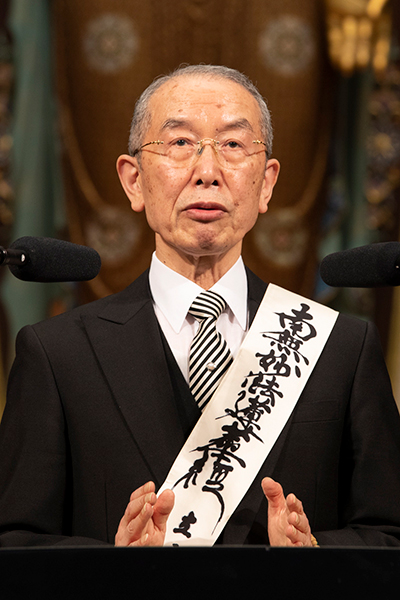Because We Have a Father and a Mother
May 2025

Mother’s Day and Father’s Day
Near the end of the Edo period in Japan, the Civil War (1861–65) broke out in the United States, dividing the country in two over the issue of enslavement. Soon after the war ended, a woman issued the Mother’s Day Proclamation with the aim of refusing to send husbands and sons off to war ever again, and this is said to be the origin of Mother’s Day (in Japan, the second Sunday of May). From one mother’s love, a day to express gratitude to all mothers was born. Father’s Day (in Japan, the third Sunday of June) also has a connection to the Civil War. A veteran had lost his wife soon after returning from the war and raised six children on his own; one of his children, out of respect for their single father, spoke up and said, “Since we have Mother’s Day, we should also have a day to praise and express gratitude for fathers,” and so that day came to be.
A mother’s steadfast love and affection for her family, and a child’s respect for their father, gave rise to the days for expressing gratitude to both mothers and fathers, and what’s more, these days have now been established in countries all over the world. From this fact we can conclude that it is the love, respect, and gratitude within the family that nurtures people’s minds, develops human beings, and forms the foundation for building a splendid country that everyone can be proud of.
In that sense, these days for expressing gratitude to our parents may be an important opportunity to reconsider the nature of family and parents, along with the words passed down to us by our predecessors: “Fathers should be the object of their children’s respect, and mothers should be the seat of compassion for their children.”
Filial Piety Is Connected to the Universe?
When I was thinking about what it means to have parents, I came across a quote from Kaibara Ekiken (1630–1714), a Japanese neo-Confucian philosopher and botanist known for his medical texts, including Yojokun (The book of life-nourishing principles): “The human body originates from a mother and a father, and begins with the heavens and the earth.” However, when I thought about what it means for our bodies to begin with the heavens and the earth, which existed long before our parents, I suddenly recalled something written by the theoretical physicist Haruo Saji. To summarize the gist of his idea, our bodies are “incarnations of nature,” made up from fragments of stars that exploded in the universe, and we human beings are “products made by the universe over the course of 13.8 billion years.” This is the very proof that we were born from the heavens, the earth, and nature.
In that case, although we are born through the karmic connection of our parents, I feel it is important to view the idea of filial piety and our practice of it in a way that goes beyond simply cherishing parents and being respectful to them or giving them gifts from a sense of gratitude—in other words, we should view filial piety within the stream of the one great life force, which also comports with the teachings of the Buddha.
However, when it comes to Mother’s Day and Father’s Day, which are fast approaching, I am embarrassed to say that I only have vague memories of expressing gratitude to my parents or giving them gifts, such as when my wife and I gave them flowers that she had arranged. On the other hand, I have more vivid memories of constantly rebelling against my parents and not being able to be honest with them and because of this, I find solace in the thinking of another scholar from the early Edo period (like Kaibara Ekiken), named Nakae Toju, which is similar to the following:
“Filial piety does not mean simply caring for the parent who gave birth to you; in fact, it is none other than returning, through your service to your parents, to the fundamental life of the universe” (Nobuzo Mori, Shinri wa genjitsu no tadanaka ni ari [Truth exists in the midst of reality], Chichi Publishing, 2000).
I have mentioned these words before, and I repeat them here, as they clearly show that filial piety is connected to the fundamental life of the universe. I hope everyone will take a more forgiving view regarding the gifts I gave to my parents and my lack of gratitude, and in next month’s issue, I would like to once again consider the meaning of filial piety and how we practice it, comparing it with the teachings of the Buddha and the wisdom of our ancestors, and delving into it more deeply in concrete terms and from a broader perspective.
In any case, it is due to our parents that we are here, right now, in this world. As we reflect upon and show appreciation for their kindness, let’s together consider the ways in which we ourselves are growing as people; this is itself a form of “raising human beings” that leads to greater harmony in the world.




